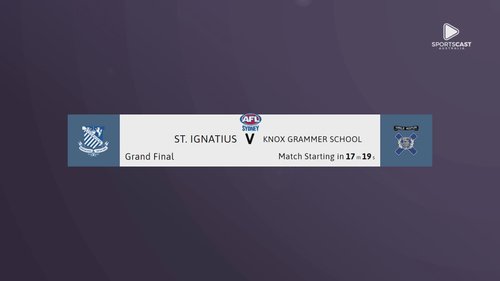The ambitious plan to play rugby league in GPS schools
NRL’s push to have elite private schools play rugby league competition
The NRL is in talks with private school powerbrokers to bring rugby league to the sporting fields of elite NSW and Queensland private schools which have been exclusive to rugby union.
The NRL is set to deliver a hammer blow to the Wallabies’ rugby union talent factory by muscling in on the city’s prestigious GPS private school sporting competition, with rugby league boss Andrew Abdo saying “the door is more open now than it’s ever been.”
It can be revealed senior bosses at the National Rugby League have already held meetings with some of Sydney’s most elite private boys schools in an
official push to introduce rugby league as a GPS sport, for the first time in over 100 years. It is a move which would shatter Wallabies fans’ hearts in the historic rugby union heartland.
NRL CEO Andrew Abdo has told The Daily Telegraph the ARL “Commission is very focused on this, and they’ve given us the task of developing a strategy to do just that, and that is, build a relationship.”
The Daily Telegraph has obtained the numbers which have opened the door for the NRL to install rugby league programs into GPS schools, and other elite independent schools, for the first time in over a century
There are almost 330 students enrolled at GPS schools that are also registered to play rugby league from junior club level through to representative pathways at NRL clubs.
Almost another 80 students who attend elite independent schools in the CAS association, like Barker College and Knox College, are also participating in rugby league.
“The door is more open now than it’s ever been,” Abdo said.
The Australian Rugby League Commission and NRL have now made it a priority to end the ostracisation of the sport in elite private schools.
Abdo said the governing body has engaged in positive talks with GPS powerbrokers and stakeholders over the introduction of rugby league programs.
We’re having really promising conversations with schools that are historically very much a rugby union schools,” Abdo said.
“The Commission is very focused on this, and they’ve given us the task of developing a strategy to do just that, and that is, build a relationship.
“Build relationships with the Department of Education, with the school principals and with the relevant school associations.”
There has been a seismic shift in attitudes at GPS schools that have had a history of discouraging its students from playing rugby league, or being contracted to NRL clubs.
Now, the injection of rugby league talent at the rugby schoolboy level is seen as beneficial to the school’s pursuit of a First XV premiership.
The timing of the GPS rugby tournament no longer clashes with the Harold Matthews (under 17’s) competition, which has eased tensions towards rugby league at elite schools.
The NRL is taking a strategic approach and has raised the possibility of running league programs outside of the winter months to ensure students won’t have to choose between the rival codes.
“We’re thinking innovatively about the product offering and having the right product for the right school.
“For example, touch football versus league, tag versus tackle.
“We’re also thinking about competitions that might not run in the traditional sense of the winter season, so that kids don’t have to choose, but rather happen perhaps a shorter period at the end of the traditional winter period where there could be an inter school competition
“The bottom line, we are focused on this and are confident we can make it happen.”
While the 15-man game is struggling at the senior level, competition at the schools level is flourishing, with the help of league talent.
The introduction of league programs into prestigious private schools would be another blow to the player development prospects of Rugby Australia.
Already, the NRL’s elite junior development pathways are a huge draw for aspiring footballers across the country once their schooling days are over.
Those pathways will only increase when the NRL eventually expands to a 20-team competition.
NRL clubs are currently able to offer six development contracts worth $80,0000 with the potential to be upgraded into the top 30 rosters, where the minimum salary is $130,000.
But Abdo believes the NRL offers more than just financial incentives over its rival code.
“It’s about opening up talent pathways,” Abdo said.
“Aspiring elite athletes want great facilities like centres of excellence, which we are helping our clubs invest in.
They want great coaching and great mentors, and they want an opportunity to showcase their skills in an elite professional environment, week in, week out. Rugby league and the NRL can provide all those things.”
Some of the NRL’s next-generation stars like Brisbane’s Cameron Bukowski (Villanova College) and Israel Leota (Ipswich Grammar), Melbourne’s Stanley Huen (Ipswich Grammar), Penrith’s Jesse and Casey McLean (Newington College) and Rooster Blake Steep (Scots College) are products of the GPS system in Sydney and Brisbane.
At the senior level, this year’s State of Origin series featured Joseph-Aukuso Sua'ali'i (The King’s School ), Angus Crichton (Scots), Cameron Murray (Newington) and Connor Watson (Knox Grammar) for NSW, and Hamiso Tabuai-Fidow (Brisbane Grammar), Jaydn Su’A (Anglican Church Grammar), Pat Carrigan (Gregory Terrace) and Lindsay Collins (Padua) for Queensland.
South Sydney skipper Cameron Murray told this masthead he would not be surprised to see even more GPS students choose an NRL pathways given the quality of development available to young talent coming through the ranks.
“The public schools rugby league system is extraordinary and the resources rugby league kids have access to at private league schools and in the NRL junior reps is really unmatched,” Murray said.
“We might see more and more kids come through GPS schools into NRL but I still think the development you get at NRL is still the top tier in junior development.
NRL clubs and GPS schools have developed a symbiotic relationship at the junior representative level.
Clubs receive the benefit of a player in their system who had access to a quality education and richly resourced athletic programs.
While the schools have the advantage of a player that is also receiving elite skills coaching and physical conditioning at NRL club land.
“I always thought schoolboy rugby was the genuine pathway to playing union professionally, the GPS rugby programs are the highest quality. But obviously now more are also playing league.
“They are both pretty good ways or pathways to work on your craft.”
View attachment 20281


